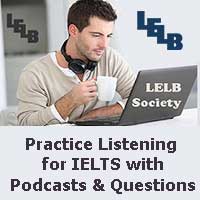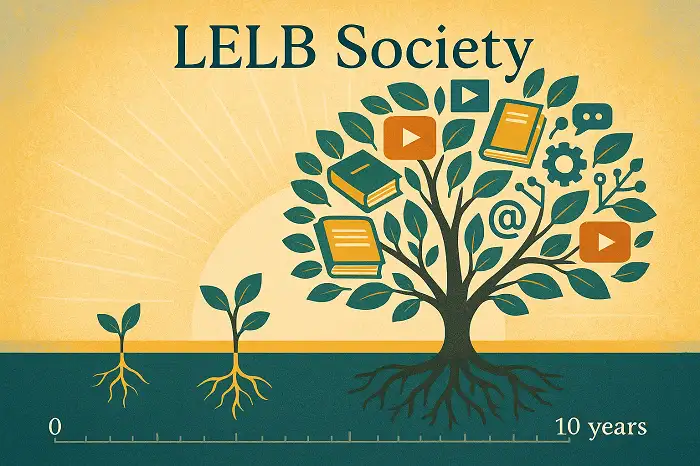IELTS Listening Practice Think Big IELTS Listening Practice Think Big About this activity This activity is labeled round table by Dr. Hariri, the creator and administrator of LELB Society. This activity is on the premise of Flipped Learning, according to which the students watch a video before the class, carry out research into the selected theme, and prepare themselves for an informed discussion in the class. This activity is on the basis of both synchronous and asynchronous computer-mediated communication (CMC), according to which the students are also encouraged to be active even before the class. In this flipped classroom activity, the students are encouraged to utilize the comment form at the bottom of the post to to exchange their questions, findings, and experiences with each ...
Home » Listening Practice in English » IELTS Listening Practice Think Big in Life

IELTS Listening Practice Think Big in Life
Updated: by Dr. Mohammad Hossein Hariri Asl
Time to Read: 3 minutes | 295 Views | 13 Comments on IELTS Listening Practice Think Big in Life
Share This Post
About the Author
Dr. Mohammad Hossein Hariri Asl is an English and Persian instructor, educator, researcher, inventor, published author, blogger, SEO expert, website developer, entrepreneur, and the creator of LELB Society. He's got a PhD in TEFL (Teaching English as a Foreign Language).
Number of Posts: 4242



6. Is it valuable to memorize facts?
An optimal level of memorization is a practical and useful mental activity. However, over-memorization or rote learning, that is, learning by heart, is the opposite of meaningful learning.
5. Which one is more crucial in order to get successful in your life – intelligence or enthusiasm?
That’s a pretty good and challenging questions about success in life. Thank you.
4. What are the basic errors made by most people regarding our intelligence?
In my idea, intelligence or IQ, compared to emotional intelligence or EQ, is rather overrated. EQ could make a more valuable contribution to one’s success in life.
3. What was wrong with Chuck’s business policy?
2. What’s the meaning of the following idiom? [Time 1:00]
we vastely understimate umberingpower
and we vestely overstimate the intelligance other people
Vastely ➡ vastly
understimate ➡ underestimate
umberingpower ➡ ❓ ❔
overstimate ➡ overestimate
the intelligance other people ➡ the intelligence of other people.
Finish your sentence with a full stop.
1. What is meant by “Intelligence Excusitis”?
i think the most instidious all disease are intteligence excusitis .it is a feeling that not quite smart enough .nobody wants to talk a bout how their feeling but the feel deep down inside and block the road the succed .
? Glad to see you are using this useful feature of our community.
Here are some corrections in order:
I ➡ capitalize this pronoun.
insidious – intelligence –
Attach the full stop to the last letter of the last word of the sentence.
Capitalize the first letter of the first word of each sentence.
a bout ➡ about
succeed